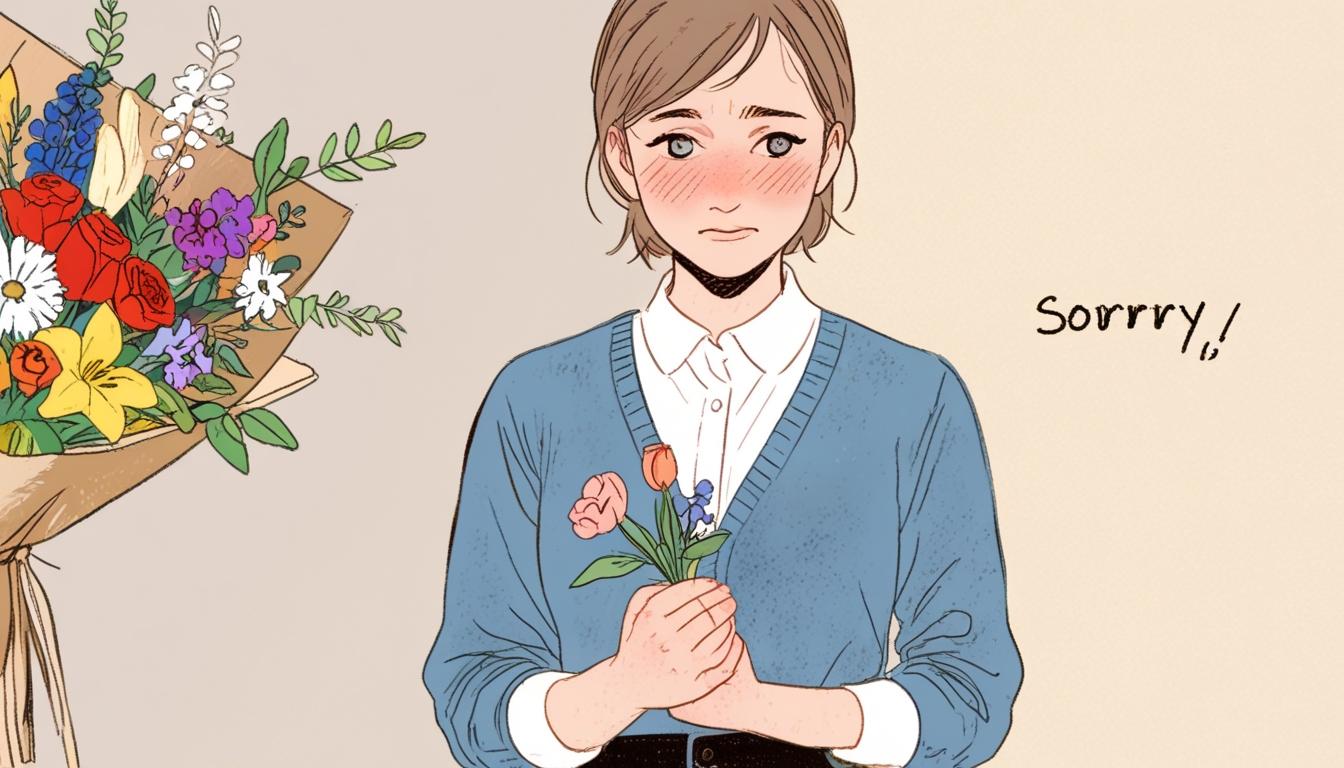The Compulsive Apology: A Deep Dive into British Humility
A recent study reveals a fascinating phenomenon within British culture: nearly 90 percent of people routinely apologise for situations that are not their fault, such as someone bumping into them. This instinctive habit reflects a deeply ingrained trait, with many considering it a “uniquely British” characteristic. A staggering 78 percent of respondents confessed to saying "sorry" after accidentally colliding with someone on the street, while 64 percent do so when navigating through crowded queues.
In total, Britons utter the word 'sorry' more than 3,000 times annually. The research, conducted by Interflora with a sample of 2,000 individuals, found that, on average, each person apologises approximately nine times a day—or 3,285 times per year. This compulsive apologising extends beyond casual encounters; over half of those surveyed (58 percent) expressed remorse for treading on someone’s foot, and 57 percent apologised when they inadvertently interrupted another person’s conversation. Such pervasive politeness permeates even the most mundane actions, with apologies issued for sneezing (36 percent), coughing (34 percent), and even when someone holds a door open too long (24 percent).
Interestingly, this habit of swift apologies for minor infractions contrasts sharply with our reluctance to confront more significant interpersonal issues. Approximately two-thirds of respondents admitted that it's more challenging to apologise for serious matters, such as hurting a friend's feelings. Indeed, 29 percent agreed that uttering "sorry" becomes especially daunting when it's time to reconcile after a falling-out. Alarmingly, half of the respondents disclosed having been estranged from a loved one for over a year without attempting to mend the rift. Despite these emotional barriers, a hopeful 69 percent indicated a desire to reconnect with friends they’ve lost touch with, suggesting that the heartfelt urge to apologise exists alongside the fear of vulnerability.
The launch of Interflora's 'Make Amends May' campaign aims to specifically address this dilemma. By encouraging individuals to reach out to estranged friends, the campaign seeks to create spaces for healing and forgiveness, aiming to transform the act of apologising into a more constructive dialogue about reconciliation. The initiative coincides with broader societal movements that advocate for emotional honesty and deeper interpersonal connections.
Supporting this aim, Interflora's related campaigns—such as 'Say More' and 'Share Something Real'—emphasise the importance of heartfelt expression through personalized gifts like handcrafted bouquets. These campaigns promote the idea that sometimes, words may be insufficient to convey complex emotions, and thus, sending flowers can serve as a tangible gesture of sincerity. This approach not only nurtures relationships but also highlights the role of local florists as essential facilitators of emotional connection in an increasingly digital age.
The cultural propensity to apologise—the "sorry syndrome" as it may be called—raises intriguing questions about British social behaviour. Are we, as a nation, excessively polite, or are such apologies merely a reflection of our internalised social norms? As we navigate modern relationships, the balance between expressing humility and asserting our boundaries remains critical. The intensive focus on communication, specifically through initiatives such as Interflora's campaigns, indicates a societal shift towards valuing authentic connections over superficial exchanges.
Ultimately, while the instinct to apologise may appear trivial in everyday contexts, its implications extend far beyond mere etiquette. It represents a crucial aspect of social interaction, revealing our collective struggles with vulnerability and reconciliation. Engaging with these emotional complexities will be essential as we seek to forge deeper connections in both personal and broader societal narratives.
##Reference Map:
- Paragraph 1 – [1]
- Paragraph 2 – [1], [3]
- Paragraph 3 – [1], [2]
- Paragraph 4 – [1], [5]
- Paragraph 5 – [1]
Source: Noah Wire Services
